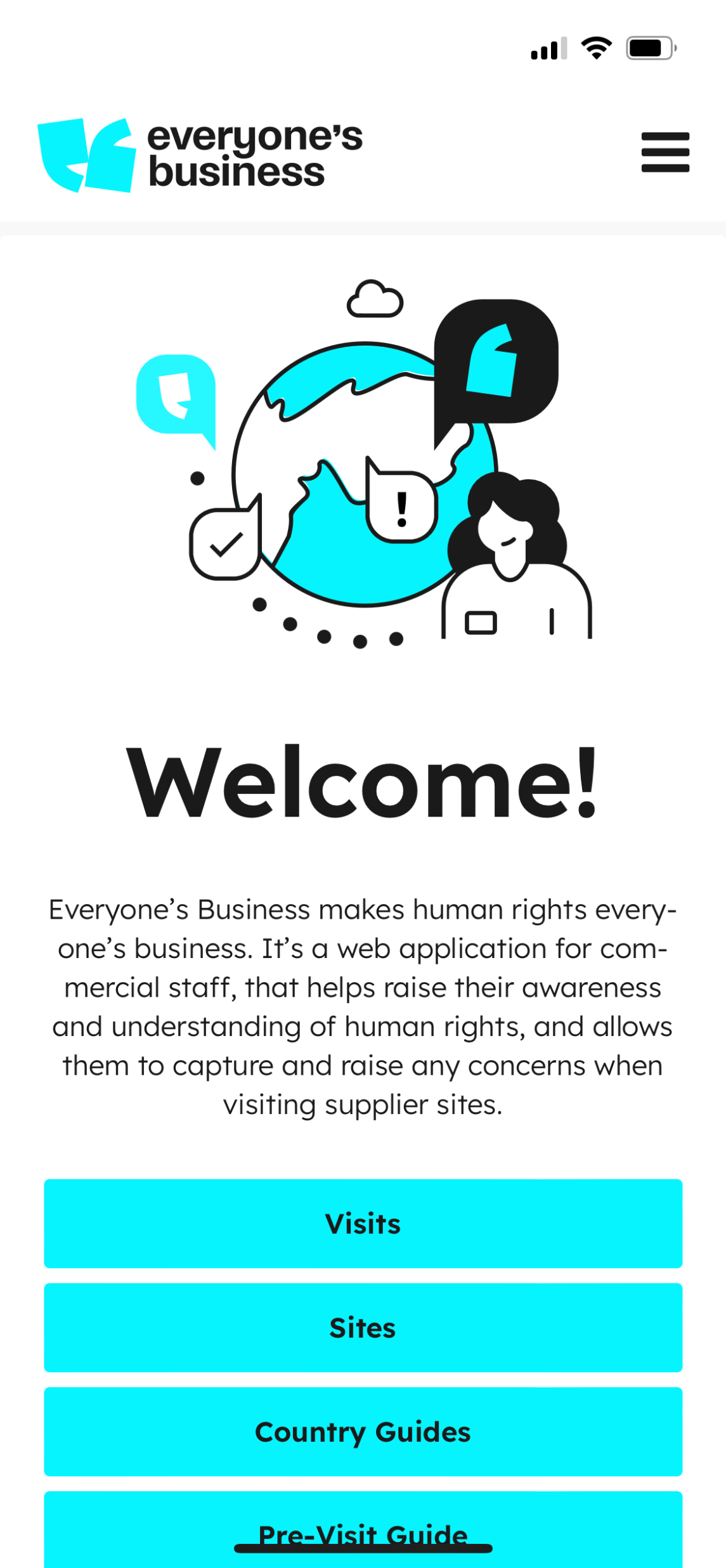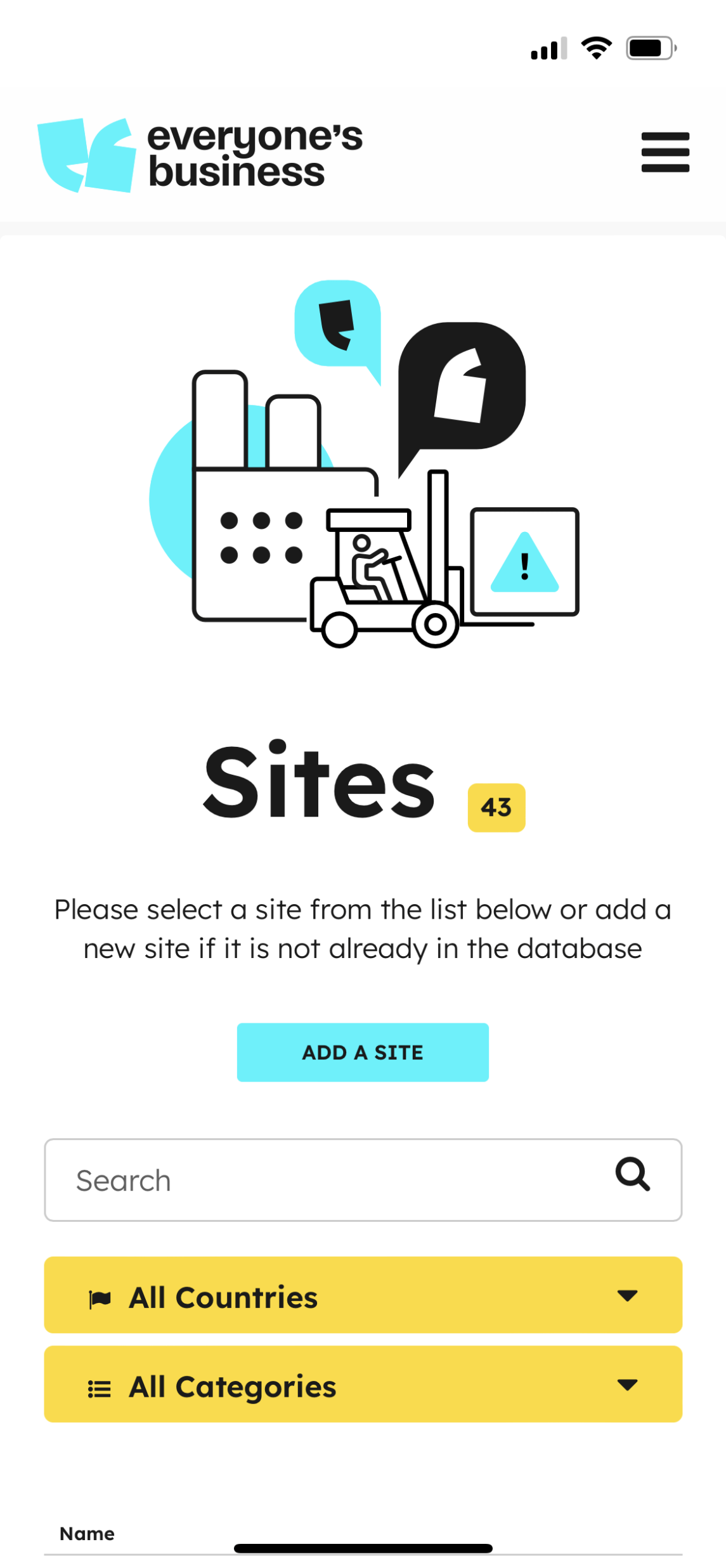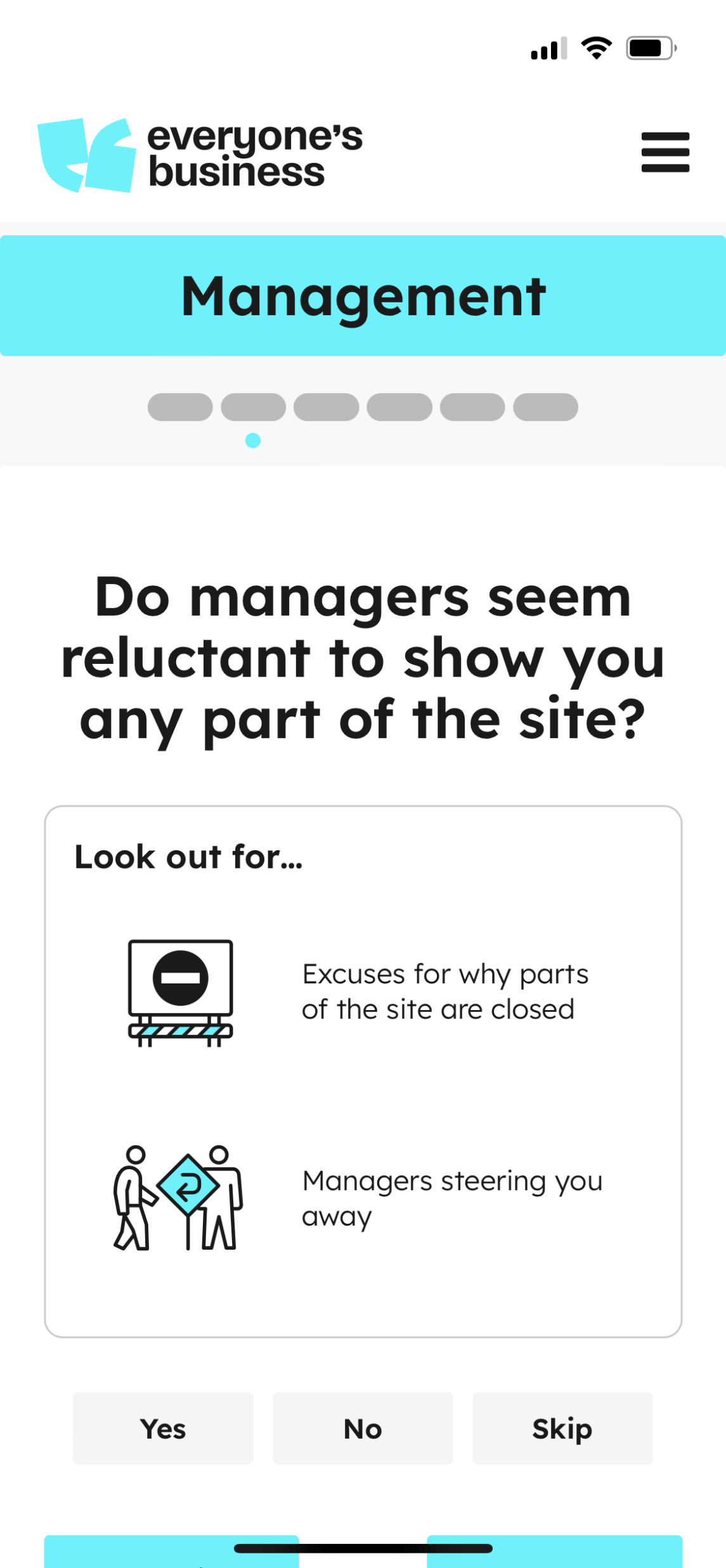How it works
Everyone’s Business is an app that supports colleagues to understand, spot and report back potential human rights risks when visiting supplier sites.
The app is designed to be used by these individuals whenever they’re out visiting suppliers. These colleagues are generally visiting suppliers more frequently than the ethical trade/human rights expert teams themselves. So, they’re in a great place to quietly observe what’s happening, ask questions, and report back any issues of concern.
As the users engage with the app, they can raise issues to their internal expert teams from within the app, to make sure any concern is raised with the right people in your organisation who can then decide the best course of action.
Everyone’s Business is not an auditing tool (and we keep the questions quite distinct from what is asked in an audit) but it does provide an additional and unique set of data to support wider company due diligence efforts.



For individuals
Individuals from participating organisations use the app when they visit a supplier site. The country guides and questions guide them through how to spot the signs of potential issues, and provide them with a way to quickly and easily feed this back to their human rights, ethical trade or CR team.
-
Get background information about the country you’re visiting, and what to expect If you’re visiting a country and you’d like some background of the context within that country, we provide this for key sourcing countries. This will equip you with an understanding of some of the known issues in that country, as well as the wider political and economic landscape. We also provide other useful information such a minimum wage levels and legal working hours.
-
Create visits, and let the Everyone’s Business questions act as a prompt when you’re on site Each time you visit a site, you can create an Everyone’s Business visit. This allows you to select your site, and answer the Everyone’s Business questions. The questions asked within the app are non-technical. They require no previous human rights knowledge – they simply ask you about your perception and observations from a visit with Yes/No answers. You also have the option to add further comments or add photos to the submission, to give extra context for your ethical trade team. All of this should take around 5-10 minutes to complete, the more you use the questions the more it’ll trigger observations as you tour around future sites.
-
Quickly and easily share your observations with your colleagues When you’ve completed the questions, you then submit the visit to your internal expert teams (ethical trade/human rights/CR teams), who are monitoring the information being submitted and deciding on the best course of action. No data that you submit will be shared outside of your organisation.
For internal experts
Whilst internal expert teams (ethical trade, human rights, CR teams) aren’t typically the target audience for Everyone’s Business app, they are a critical part of the process. They have access to all visit data, can choose to respond when issues are raised, and use the information to help their organisation to get a better understanding of the human rights risks at supplier sites.
-
Upload your active supplier list To ensure that the data collected in the app matches internal systems, companies upload their active site list directly into the tool. This means that users are presented with a list of suppliers when they create a visit instead of relying on them to accurately input data. This also means that you can export the visit data to cross-compare with other internal data sources.
-
Respond to issues as they’re raised Everyone’s Business will send notifications to your team to notify you when an issue has been raised. You can then follow up with the supplier site, or the colleague who raised the issue to learn more and start to address the issues. You can set preferences to receive auto alerts for the things you might be interested in. For example when specific sites are visited, or specific countries, or when certain questions are answered in a certain way.
-
Track each issue status You can track your follow actions within the tool, so the whole team can see the status of how an issue is being resolved.
-
Understand the trends over time As your teams start to submit more and more visits, you can analyse the trends from this data using our export function. This can help you explore questions such as: Which are the most commonly raised issues? Does this vary by country or supplier category? Over time, this may give you a better understanding of the risks in your supply chain.
-
Celebrate your colleagues that are most engaged Everyone likes a little healthy competition. Within the interface, you’ll be able to see who’s been engaging with the app the most so you can celebrate those who are leading the charge in your organisation. You could use this to report KPIs on training and awareness.